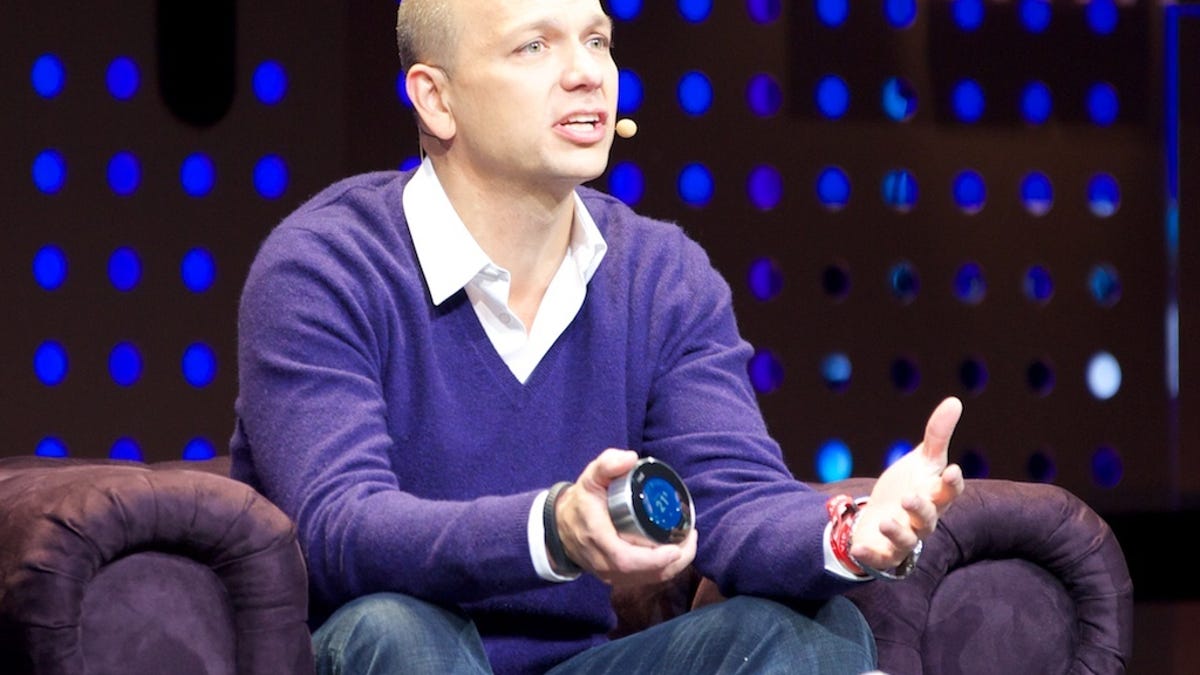Nest CEO Fadell: Internet of things is a decade away
We've still got a ways to go before it's common to see all manner of machines hooked to the Internet, says the CEO of a startup hoping to do just that with its smart thermostat.

PARIS -- It will take 10 years before the "Internet of things" catches on widely, said Nest Labs Chief Executive Tony Fadell, whose smart-thermostat startup embodies the technology.
"People think there's this Internet of all kinds of crazy devices that are going to talk to each other. It's going to take some time," Fadell said at the LeWeb show here. "Give it five or eight years and then you'll see machines talking to machines. Then it'll be commonplace in 10 years or so."
The Internet of things is the idea that networked computing will spread far beyond today's computers and smartphones to things like refrigerators, light bulbs, traffic lights, and really just about anything. It's a real phenomenon, but it's not clear yet how far it will extend beyond straightforward devices like cars to sci-fi gadgetry like bloodstream nanobots.
Fadell, of course, believes that the thermostat is ready to plug into the Internet of things, enabling people to control it remotely and for the device itself to tap into weather reports. Nest announced its second-generation thermostat in October, a slimmer model that Fadell hopes will find a foothold in a large market.
"The thermostat market is larger than stoves, refrigerators, dishwashers, and they're such an energy consumer," with home heating and cooling using more than half of a house's energy, he said. "Nobody has innovated it for 20 or 30 years."
Fadell, the "father of the iPod" during his days at Apple, has tried to bring some of his former employer's design sensibility and obsessive customer focus to the thermostat business. And it's brought some of Apple's secrecy, too.
"A startup is about being fast, stealthy, and being ready to sell it right when people are ready to buy it," Fadell said. "That secrecy makes people excited when it comes out" -- which is especially useful with something as mundane as a thermostat.
Asked his opinion about Google's networked eyewear, Project Glass, Fadell said, "It's the next logical extent" for mobile computing, something he believes will be connected to a mobile phone rather than a standalone computing device.
He's intrigued but not yet convinced of its merits, saying it's not clear whether Google's spectacles are transformative technology like the iPhone or arriving before the market is ready for them. And it's got a social hurdle to overcome.
"I'm still getting used to somebody talking to me wearing it," Fadell said.
Though enthusiastic about launching a startup, he was leery of one particular mechanism popular today: Kickstarter. That site lets interested potential customers directly fund new ideas.
"I'm very positive on Kickstarter to find the audience for books and things easier to produce," Fadell said. However, "the hardware things are difficult, and you have to look at how hard they are to produce to see if they're going to come to light. It's when it goes to the mass public, and the mass public demands they have the product and they don't receive it, that's the bad part."

